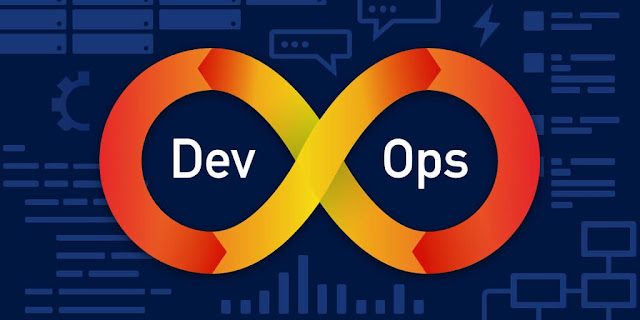
DevOps engineers have transformed IT culture by focusing on quick IT service delivery. They support continuous deployment and infrastructure advancements by implementing agile practises.
They have revolutionised the software development environment by encouraging collaboration across development, operations, and testing. However, because DevOps is still a relatively new area, there is always space for growth and learning. The top 16 DevOps blogs that we highly suggest reading are highlighted in today's post.
DevOps teams outperform their conventional deployment rivals in terms of performance. According to Puppet's 2017 State of DevOps study, high-performing DevOps teams had 46 times more frequent code deployments, 440 times quicker lead time from commit to deploy, and 96 times faster.
Successful DevOps engineers are continually immersed in new ideas, learning and applying them. Despite the plethora of DevOps information accessible, determining its quality may be difficult. If you want to become Devops engineer then you may need a good course to get started, so I have a DevOps Bootcamp discount for you to save huge on your purchase.
Today's handpicked list includes some of the most popular, informative, and compelling DevOps blogs that we frequently read and highlight for insightful material. These blogs provide essential insights for everyone interested in DevOps, whether you are a beginner to the sector or an established expert.
What Are The 8 DevOps blogs you should be reading?
1. Atlassian DevOps blog: If you appreciate Atlassian products like JIRA, Bitbucket, Confluence, Bamboo, Trello, and others, this blog is for you. It goes into critical DevOps ecosystem themes spanning from IT management to compliance requirements. The blog provides information on a variety of topics, including choosing the best DevOps technologies, developing a DevOps culture, important DevOps ideas, and much more. It's a goldmine of information for DevOps fans.
2. DevOps.com: DevOps.com serves as the core centre of the DevOps community, focused solely on DevOps. This platform provides a wide range of material, including news, product reviews, opinion articles, strategies, best practises, case studies, events, and expert insights. A notable highlight is their weekly podcast, "DevOps Chat," presented by renowned IT professional Alan Shimel.
DevOps.com has a wealth of materials for people seeking in-depth expertise. Every month, they provide many webinars on various DevOps approaches and strategies, such as "Automating Deployment for Enterprise Level Businesses" and "Setting Up a Private Cloud." Furthermore, their vast library of booklets and PDFs is easily accessible for download, providing a plethora of essential material to empower DevOps aficionados at all levels.
3. ScienceSoft’s Infrastructure Management Blog: ScienceSoft, a global leader in IT consulting and infrastructure services, has launched a knowledge portal in the form of a blog. Their knowledge is well-established as a Microsoft Gold Partner and an AWS Select Consulting Partner. Contributions to the blog are made by industry-leading DevOps engineers who willingly share their practical experience about the most successful ways to DevOps deployment, best practises, and useful DevOps technologies. This body of information is an important resource for anybody looking to improve their understanding and skill in DevOps.
4. KodeCloud Blog: KodeKloud distinguishes out as a top-tier DevOps education platform devoted to empowering every aspiring DevOps professional. Their platform, which emphasises learning-by-doing, provides extensive learning routes, bite-sized videos, interactive quizzes, playgrounds, and real-world projects known as 'KodeKloud Engineer.'
I hope you found these posts to be useful! If you know of any more blogs that should be added on this list, please share them in the comments area below!
5. DZone DevOps: DZone is a well-known technology website and educational resource that provides a plethora of IT and Agile-related material. It offers as a complete resource for IT aficionados, with several articles released daily across various "Zones" such as DevOps, Cloud, Java, Mobile, IoT, and more. The DevOps area, in particular, stands out for its wealth of useful materials, including author contributions from well-known DevOps developers.
You may find a wide range of information in the DevOps area, spanning from theoretical insights to real implementations of technologies and practises across many industry verticals. DZone contains everything you need to be educated and empowered in the DevOps environment, whether you're looking for information or solutions.
6. Apiumhub blog: This fast growing tech blog is divided into sections that provide a lot of knowledge on automation approaches, DevOps technologies, Jenkins, Docker, continuous integration, and much more. The blog is run by a team of seasoned DevOps specialists that frequently produce articles based on their significant knowledge in the subject. This tech blog has you covered whether you're seeking for insights, updates, or professional advice on DevOps-related issues.
7. Infoworld: Network World is an online journal that covers a variety of subjects including data, networks, cloud computing, and more. The journal, which focuses on DevOps, has a multitude of interesting articles. By reading this blog, you may keep current on industry news and dig into the complexities of DevOps via technical how-tos and professional tips. It is a wonderful resource for anybody interested in staying updated about the world of DevOps.
8.
DevOs guys: The DevOps Guys blog is
dedicated to the DevOps culture in all of its forms. Steve Thair, an Ops
expert, and James Smith, a Dev expert, collaborate to select compelling and
instructive content. This blog celebrates the dynamic and ever-changing nature
of the DevOps culture and industry, making it a fun and entertaining read.
While many sites concentrate on DevOps mechanics like as tools and best
practises, this blog stands out for its extensive grasp and coverage of the
larger DevOps ecosystem.





